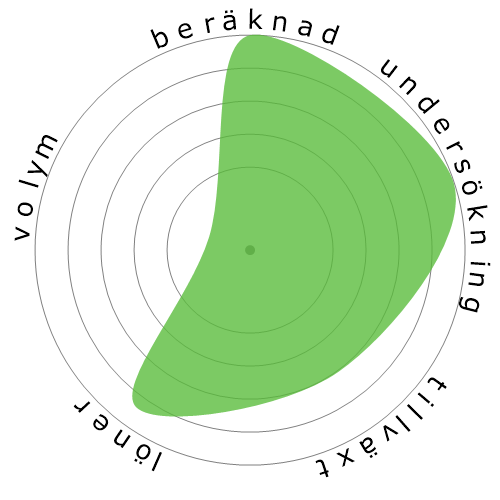Fysiker
Vart vill du åka härnäst?
Eller, utforska detta yrke i större detalj...


Vad visar denna snöflinga?
Vad är detta?
Vi betygsätter jobb med hjälp av fyra faktorer. Dessa är:
- Risken för att bli automatiserad
- Jobbtillväxt
- Löner
- Volymen av tillgängliga positioner
Dessa är några viktiga saker att tänka på när man söker jobb.
Personer tittade också på
Beräknad automatiseringsrisk
Minimal risk (0-20%): Yrken i denna kategori har en låg sannolikhet att automatiseras, eftersom de vanligtvis kräver komplex problemlösning, kreativitet, starka mellanmänskliga färdigheter och en hög grad av manuell skicklighet. Dessa jobb involverar ofta komplexa handrörelser och exakt koordination, vilket gör det svårt för maskiner att replikera de nödvändiga uppgifterna.
Mer information om vad detta betyg är, och hur det beräknas finns tillgängligt här.
Användarundersökning
Våra besökare har röstat att det är en låg chans att detta yrke kommer att automatiseras. Detta bedömning stöds ytterligare av den beräknade automationsrisknivån, som uppskattar 0,6% chans för automation.
Vad tror du är risken med automatisering?
Vad är sannolikheten att Fysiker kommer att ersättas av robotar eller artificiell intelligens inom de närmaste 20 åren?
Känsla
Följande graf visas där det finns tillräckligt med röster för att producera meningsfull data. Den visar användaromröstningsresultat över tid och ger en tydlig indikation på sentimenttrender.
Känslor över tid (årligen)
Tillväxt
Antalet 'Physicists' lediga jobb förväntas att öka med 7,2% till 2033
Total sysselsättning och uppskattade jobböppningar
Uppdaterade prognoser beräknas 09-2025.
Löner
I 2023 var den medianårliga lönen för 'Physicists' 155.680 $, eller 75 $ per timme.
'Physicists' betalades 223,9% högre än den nationella medianlönen, som låg på 48.060 $
Löner över tid
Volym
Från och med 2023 var det 18 350 personer anställda som 'Physicists' inom USA.
Detta representerar cirka < 0,001% av den anställda arbetskraften i hela landet
Sagt på ett annat sätt, runt 1 av 8 tusen personer är anställda som 'Physicists'.
Arbetsbeskrivning
Genomför forskning om fysiska fenomen, utveckla teorier baserade på observationer och experiment, och utforma metoder för att tillämpa fysiska lagar och teorier.
SOC Code: 19-2012.00
Kommentarer (45)
If any junior reads this message, I can only wish you the best. While your work is irreplaceable by AI, your future will be filled with problems where AI cannot assist you. Good luck.
If anything, I can see some simulation aspects or redundant experimental procedures being automated in the near term. But parts that incorporate creative problem solving or the physical intuition needed in determining directions to take research are things that are pretty safeguarded to humans for a bit.
I think those "intuitions" are very difficult to map to general problem-solving algorithms.
We can have a discussion on whether it is possible in the next 200 years, sure, but 20 years? That's laughable. Given that only physicists are qualified to write, train, and optimize the algorithms that would be used to replace them, it will take a long, long, long time.
I suspect that we would need true machine sentience before we could actually start to talk about replacing theoretical and mathematical physicists.
Svara på kommentar